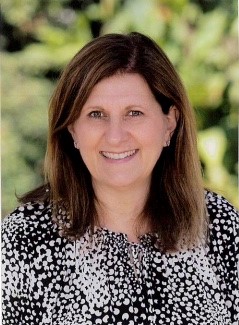ASC Cato Award Recipient Constance Tina Heracklis Passes on Love of Learning to Her Students

BY DASIA HOOD
The daughter of Greek immigrants, Constance Tina Heracklis’ parents instilled a love of learning in her.
They stressed the importance of education to her. While they didn’t have the opportunity to pursue college, they supported their daughter’s education by being engaged in her schoolwork and educational activities.
Heracklis, a 28-year teaching veteran who teaches science at Gaston Day School, now shows the same dedication to her students that her parents showed her.
It’s one of the reasons she was named a 2024 ASC Cato Excellence in Teaching Award recipient. The award, which comes with $1,500 and an original artwork, recognizes teachers who demonstrate exceptional creativity in infusing arts, science, or history into the core curriculum.
“My parents’ lack of education and their pursuit of us having the best education possible drove me to become a teacher,” Heracklis said.
Overcoming Challenges in Education Through Social Impact
Heracklis’ greatest challenge is providing students with the support they need to prioritize their education. Some may stay up late, skip breakfast or lack a suitable place to study. To help her students achieve, Heracklis establishes a relationship with each one – sharing her personal stories of how her parents motivated her to focus on learning and serving as a support system for them.
“I can’t change those home things, but I can tell them I care,” she said. “I explain to them that education is the way to overcome some of the circumstances they find themselves in.”
Her constant message to her students: Be the best you can be.
“I think all students have talents,” Heracklis said. “They manifest themselves in different ways and I just need to somehow find or bring that out in them. And I can only do that if they know I’m caring, supportive and looking out for their best.”
Students Who Love Storytelling
Heracklis uses storytelling to make classroom lessons relatable and relevant to what’s happening in the world.
“I seem to come up with a story for everything,” she said before sharing a note from a high school senior she recently received in her inbox:
I have many things to thank you for. The first is all of the stories I got to hear while taking your classes. I love all the memories that I made in your class. I will always take this fun, interesting way with me. I have truly enjoyed having you as a teacher, and will miss talking to you next year. Thank you for teaching me so much, and really caring about your students.
The Philosophy of Philotimo
The Greek concept of philotimo can be difficult to define. But, in Heracklis’ classroom, it means, “exuding a welcoming attitude that honors and respects others.” She uses the term to epitomize her relationships with students and how she encourages her students to be with others.
As the mother of an adult with autism, Heracklis’ son impacted her teaching by making her see all the learning difficulties people have in class and how to improve them. She believes that rooting her students in the philosophy of philotimo creates experiences where young people can learn together and respect their differences.
She augments that philosophy by implementing games and hands-on learning in her daily agenda that help captivate students in the classroom.
“We are competing with their phones, TikTok, and everything else,” she said.
The way to overcome that is by being engaging and making authentic connections with students.
“Once you establish a relationship, you can be silly with them,” she said. “Once you’ve got them hooked and comfortable, they’ll do that [silly thing] for you. And we laugh. I think laughing is a great thing.”

